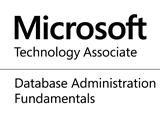I took the exam on June 27 and passed with an 85%.
Probably could have done better if I’d waited another week, but, it’s a pass.
I used the MOAC (Microsoft Official Academic Course) for the exam. There were some bad reviews of it, but since I am pretty new to SQL, I found it helpful.
I watched the MVA videos and downloaded the powerpoints. I didn’t really find that as helpful. There was some information that I could use. I think the best part was when they used SQL Server Management Studio, so I could see how it’s used.
I bought a practice test from MeasureUp, and took the GMetrix one that came with the MOAC.
Some of the questions in the practice tests were very similar to about half a dozen of the test questions.
Taking the tests in study mode gave me an opportunity to do research. Lots of questions were not explicitly covered in the MOAC, so I had to search for some answers online, In study mode, though, you can check your answers (very helpful) and allowed me to add to my notes.
I took a lot of handwritten notes from the MOAC and the practice tests.
The test is only about 35 questions. The testing environment is pretty intense. You can’t take anything into the room with you, and they have a camera on you at all times to prevent cheating. You find out immediately what your score is, and get a printout to bring home. It only took a couple of days to get an official email with my credential number and then I could order a certificate.

I was so excited to get the certification and the logo.
I had intended to write stuff as I was learning it, but handwriting the notes hurt my wrist and I didn’t have the energy to also type them all up.
But I still have the handwritten notes and it won’t hurt to write them in a neater way and be able to look them up later.